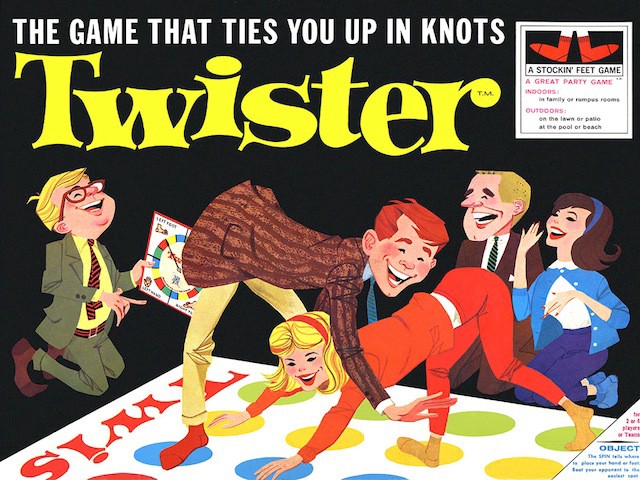Go Play Some Adult Games
by Alexandra Molotkow

“I had no friends; I didn’t know what to do with my life, so I started to follow people. Establishing rules and following them is restful. If you follow someone, you don’t have to wonder where you’re going to eat. They take you to their restaurant. The choice is made for you.”
During her stalking days, a friend asked if she could sleep in Calle’s bed. “That made me think it would be fun to have someone in bed all the time.” So she asked friends and strangers to sleep in the bed for eight hours; one participant thought there was going to be an orgy. It sounds like a conceptual art project. “It wasn’t,” counters Calle. “It only became so when the wife of a critic told him about it. He came along. He said, ‘Is this art?’ and I said, ‘It could be.’”
I love this 2009 interview with Sophie Calle, and I love “Why Not?” as a motive, generally, for any sort of (ethical!) behavior, and I know this is going to sound flaky, but I love activities that aren’t any one kind of activity, because there are only so many kinds of activity and yet there are so many things to do. “Art” is just a catch-all for fun things that aren’t routine.
Rather than having sex, sometimes it’s cool to just hang out in someone’s bedroom for a while and read and fall in and out of sleep on their comforter. And sometimes rather than having sex it’s cool to, I don’t know, drum on each other’s backs and then roll around pretending to be worms? My point is there are lots of things to do with other consenting adults that are neither sexual nor friendly nor Twister. The same goes for relationships — there are like 12 identified kinds of relationship and about four infinities of manifested relationship in human history.
I think most grownups figure this out for themselves, but knowing doesn’t prevent us from acting shocked when a friend tells us they did something other than just talking or having sex with someone who is not just a friend, sex partner, or romantic life partner.
In 2013, a woman wrote in to a Globe and Mail advice columnist about her neighbor, who liked to lead her girlfriend around their neighborhood on a leash; the woman didn’t want to have to talk about this with her daughter: “I told her that she was pretending to be a dog and that the other lady was playing the owner. My daughter loves inventing her own play scenarios and easily accepted my explanation,” but you know, there’s a sinister dimension to this behavior that can’t be explained by the clearest, most simple explanation.
The resulting advice column, which I won’t link to, caught the leash-holder’s attention, and she very patiently agreed to meet with the advice columnist for a follow-up interview. “We’ve turned our lives into a game,” she said. “We like to have fun. Why people aren’t people allowed to have fun as soon as they turn 20?”
And… yeah! This, by the way, and maybe predictably, is something I love about Miranda July. From an interview in BOMB Magazine, with Rachel Kushner:
I don’t really have that kind of judgement of my characters. They are expressing something for all of us, or at least for me, and so it’s me behaving badly. But really the worst behavior is to not talk about it… In general I’m trying to make a space where it’s not clear, or maybe not even interesting, whether someone is good or bad or crossing a line. Instead, the focus is on what the individuals are feeling, their ability to reach through the web of their own fears and fantasies and connect with someone else, regardless of how appropriate this connection is, and it often isn’t.
…And often it’s totally appropriate, but unpredictable. I liked this current in The First Bad Man, and in her story “The Sister,” and in her work generally, even when it doesn’t totally succeed. It’s utopian in the sense that it removes the barriers to connection, and a less precious way of saying that is: it’s about not getting bored. There’s nothing arcane or very complicated about that.